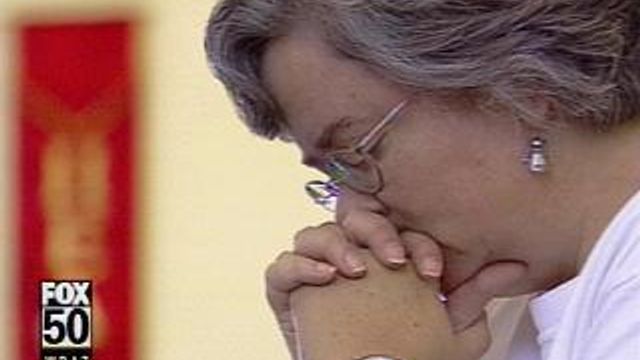ACLU: State religion proposal misreads Constitution
A House resolution that supports creating an official religion in North Carolina and ignoring any federal ruling against Christian prayer by public bodies statewide flies in the face of the U.S. Constitution, the ACLU said Wednesday.
Posted — UpdatedThe resolution grew out of a dispute between the ACLU and the Rowan County Board of Commissioners. In a federal lawsuit filed last month, the ACLU says the board has opened 97 percent of its meetings since 2007 with explicitly Christian prayers.
In a 2011 ruling on a similar lawsuit against the Forsyth County Board of Commissioners, the Fourth U.S. Circuit Court of Appeals did not ban prayer at government meetings outright, but said prayers favoring one religion over another are unconstitutional.
The resolution would refuse to acknowledge the force of any judicial ruling on prayer in North Carolina, noting that the First Amendment clause prohibiting government establishment of religion applies to Congress and not to state or local governments.
"It demonstrates a misunderstanding of constitutional law," said Sarah Preston, policy director for the ACLU in North Carolina. "This really is about everybody's ability to exercise their own religion freely and not have interference from the government and not be excluded by their own government."
Rep. Justin Burr, R-Stanly, said he decided to co-sponsor the resolution simply in support of public prayer. He said he doesn't think the proposal, which carries little legal weight, violates anyone's right or is unconstitutional.
"We have a right as individual members to pray and open our meetings with prayer, and I certainly support that right," Burr said. "I want that my right and that any other right of any other elected officials or other individuals in this state to be protected and for them to have the freedom of speech and their freedom of religion to practice it as they so choose."
Rep. Paul Luebke, D-Durham, said the state's rights argument is well worn.
"This bill is exactly parallel to the positions of white segregationists during the '50s and '60s," Luebke said.
Although the idea has stirred debate this week, it might be short-lived. Sources in the GOP leadership say it's doubtful it will ever come up for a House vote.
Related Topics
Copyright 2024 by Capitol Broadcasting Company. All rights reserved. This material may not be published, broadcast, rewritten or redistributed.





